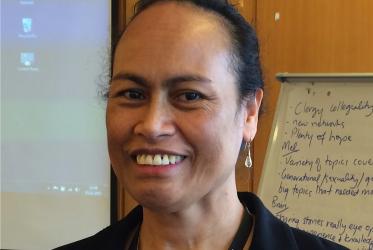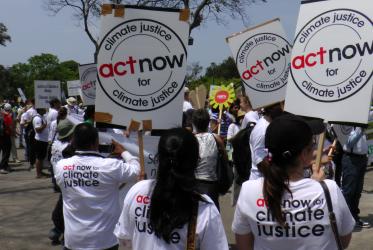Displaying 161 - 180 of 208
International affairs facilitator reflects on pilgrimage
31 March 2016
"I hit the ground running": Katalina Tahaafe-Williams
16 February 2016
Symposium focuses on religion, violence, extremism
04 February 2016
Voices of faith speaking to voices of fear
03 February 2016
Church challenge: Welcoming "strangers" in a climate of fear
18 November 2015
Congolese church leader speaks on DRC electoral process at UN event
17 September 2015
Faith communities urge U.S. to resettle more Syrian refugees
14 September 2015
Churches' “prophetic voice” will be busy in 2015
18 June 2015
WCC Executive Committee speaks out on migrant crises
12 June 2015











